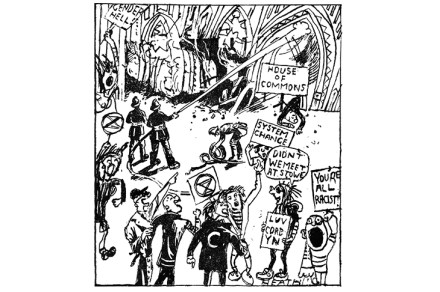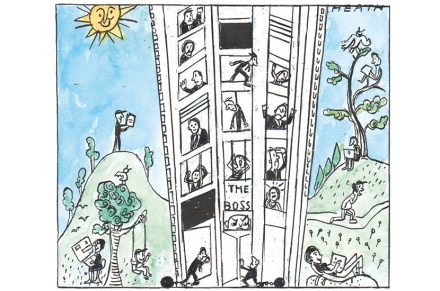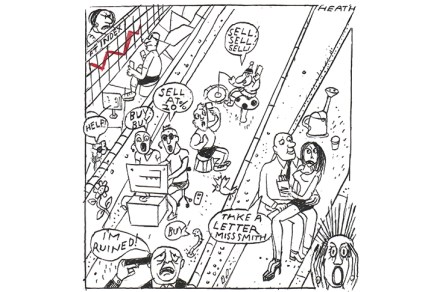The cult of London
The phrase ‘rich people’s problems’ has its uses. I once overheard a group in a Knightsbridge restaurant sympathising with a companion in tones fit for a bereavement or life-changing injury. ‘Oh, poor you!’ It turned out that their nanny had been ill for two days while they were in Zermatt, and that Farrow & Ball was temporarily unable to supply an obscure shade of paint. To be fair, there are problems unique to the seriously rich. Take Marci Klein, daughter of Calvin. Not only was Marci kidnapped aged ten, but she later complained that in the midst of any passionate encounter with a new boyfriend, she would suddenly find herself







